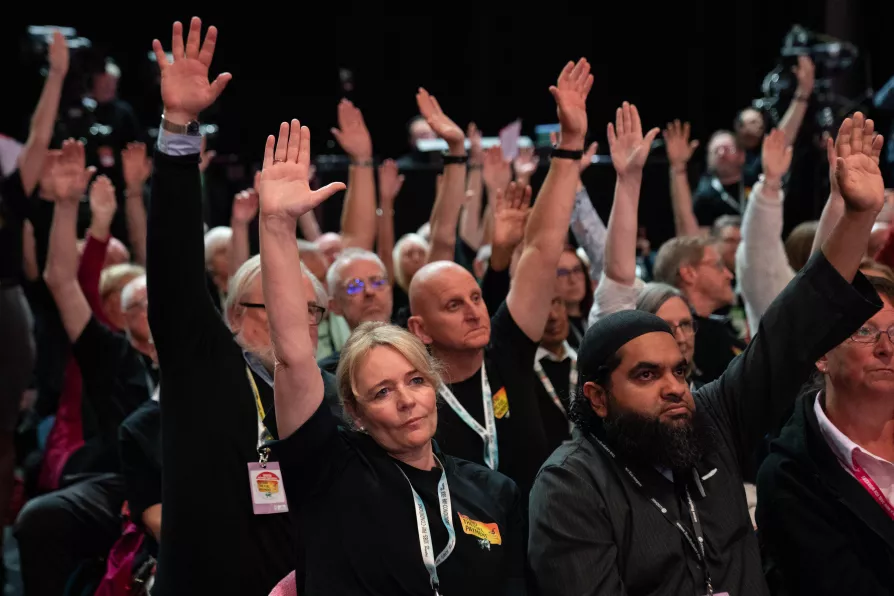LUKE FLETCHER outlines Plaid Cymru bold plans for wide-ranging policy consultations with trade unions in Wales
Though cowards flinch
The Red Flag still flies from the Clyde to the Mersey, and whatever the current leaders of the Labour Party say or do, power rests with us, the working class, and our ability to say no to the corruption of the rich, writes MATT KERR

 PRINCIPLED: General secretary of the Unite union Sharon Graham votes during a debate on cuts to the winter fuel allowance during the Labour Party conference in Liverpool on Wednesday
PRINCIPLED: General secretary of the Unite union Sharon Graham votes during a debate on cuts to the winter fuel allowance during the Labour Party conference in Liverpool on Wednesday
ON Wednesday afternoons, dozens of socialists and trade unionists came together to sing a parting hymn, the Red Flag; it is a moment I will treasure for as long as I draw breath.
Our voices carried that anthem into a cloudless sky across the — for once — sunlit moorlands over the Firth of Clyde, as we said goodbye to my father.
It was a gathering of the whole family, some bound by blood, most bound in the struggle of the labour and trade union movement over my dad’s five decades of activism.
Similar stories

Labour’s pop-loving front bench have snaffled up even more music tickets worth thousands apiece, reports SOLOMON HUGHES













